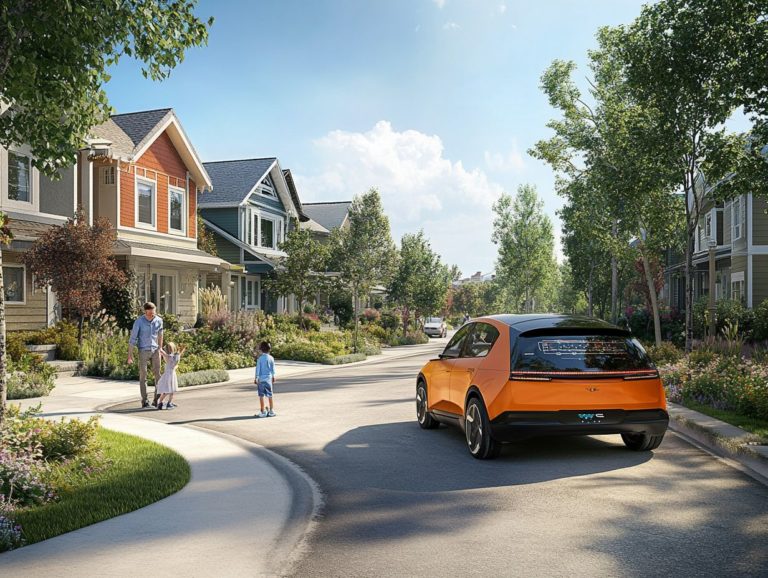Factors That Affect New Car Prices in 2024
As the automotive landscape evolves, understanding the factors that influence car pricing is essential for everyone buyers, dealerships, and industry experts alike.
This article explores the economic dynamics that shape vehicle costs, from inflation to interest rates. We will also look into how technological advancements and environmental regulations affect production and pricing strategies.
You ll also learn how consumer preferences impact the market. Get ready to dive into the fascinating world of car pricing factors for 2024!
Contents
- Key Takeaways:
- Economic Factors
- Technological Advancements
- Environmental Regulations
- Consumer Preferences
- Frequently Asked Questions
- What are the factors that affect new car prices in 2024?
- How will the state of the economy impact new car prices in 2024?
- What role will raw materials costs play in new car prices in 2024?
- Will changes in consumer demand affect new car prices in 2024?
- How will advancements in technology impact new car prices in 2024?
- Are there any external factors that could affect new car prices in 2024?
Key Takeaways:
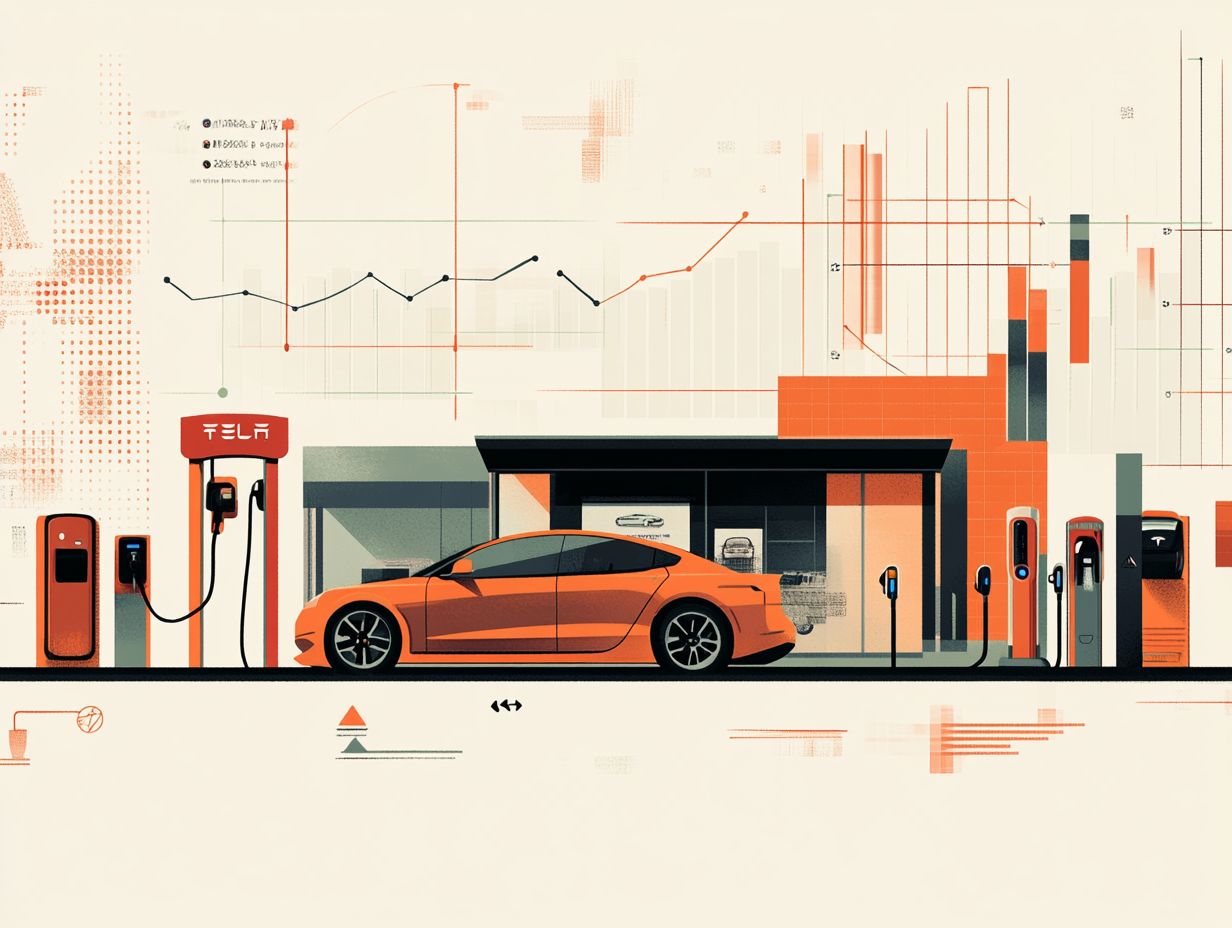
Inflation and market trends have a direct impact on new car prices in 2024, causing fluctuations in overall demand and supply.
Technological advancements will influence car features and prices, particularly with the rise of electric and autonomous vehicles.
Environmental regulations will play a significant role in determining new car prices, as manufacturers may face additional costs to meet stricter emission standards.
Overview of Car Pricing Factors
Understanding the various factors that influence car pricing is crucial for everyone involved in the market. The car market is complex, shaped by elements such as rising interest rates, dealership incentives, and shifts in consumer preferences for new cars, used cars, and electric vehicles.
With the new 2024 car models on the horizon, it s essential to analyze how these factors intertwine to impact vehicle prices and your purchasing decisions. This is especially important considering current economic conditions and personal budgets.
For instance, rising interest rates can make financing options burdensome, leading to less manageable monthly payments. This shift often drives stronger demand for used cars as buyers seek more affordable alternatives.
Meanwhile, dealership incentives are vital for attracting buyers, often lowering new vehicle prices temporarily through rebates or special financing offers. Additionally, inventory fluctuations, driven by global supply chain issues or changes in demand for eco-friendly options, can further shape pricing strategies.
By understanding how these dynamics interact, you can make informed decisions that keep you within your budget while capitalizing on the best value in the ever-evolving car market.
Economic Factors
Economic factors are crucial in shaping car prices, especially during times of recession or inflation. These conditions can significantly impact your budget and purchasing decisions.
Staying informed about the broader financial landscape is essential when considering a vehicle purchase.
Inflation and Market Trends
Inflation plays a pivotal role in shaping car prices, leading to increased vehicle costs that tighten budgets and influence market trends.
As inflation continues to rise, you may feel pressure if you’re considering a vehicle purchase. Higher car prices can restrict your spending power, making you more hesitant and prompting a reevaluation of your budget.
This cautious approach can lead to a decline in demand for both new and used vehicles, as you prioritize essential expenses over luxury items, especially during economic downturns.
When unemployment rates rise and financial strains hit many households, the market dynamics can shift dramatically. You might find yourself opting for older models or exploring alternative transportation options, reflecting broader trends within the automotive sector that may experience noticeable sales declines.
Act now to make the most of your budget before prices rise! Stay informed and check back regularly for updates on pricing trends.
Impact of Interest Rates
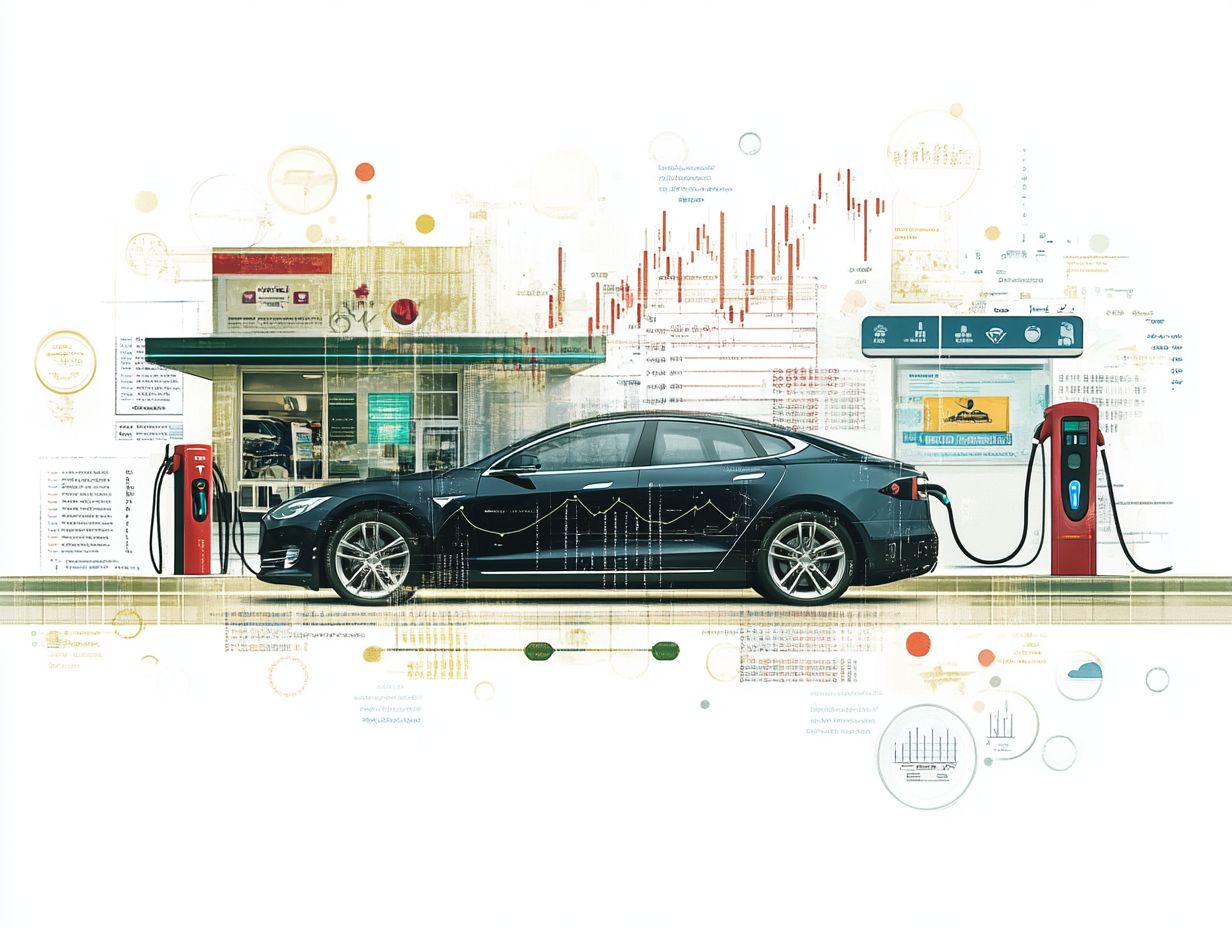
Rising interest rates can significantly influence your financing costs, ultimately impacting car prices and shaping your purchasing decisions, whether you’re a consumer or a dealership in the automotive market.
When borrowing gets more expensive, you might find yourself reassessing your budget, leading you to explore less costly options or even consider postponing your purchase altogether.
This change in how people shop forces dealerships to alter their strategies. They may start emphasizing competitive financing deals or enhancing trade-in values to draw in hesitant buyers like yourself.
Auto experts point out that as economic factors fluctuate think inflation and employment rates dealerships will need to meticulously evaluate their inventory and pricing strategies to remain appealing in this shifting landscape.
Ultimately, rising financing costs can create a ripple effect, reshaping not only your choices but also dealership operations and the overall dynamics of the market.
Technological Advancements
Technology is revolutionizing the automotive world. New features in electric vehicles not only change car prices but also how you make your choices.
This evolution enhances the driving experience and steers buyers toward more informed decisions, making it essential for you to stay attuned to these developments.
Effect on Car Features and Prices
The introduction of advanced car features, especially in electric and hybrid vehicles, often leads to fluctuations in pricing as you weigh the benefits of cutting-edge technology against the cost.
As more manufacturers integrate innovations like adaptive cruise control a feature that automatically adjusts your speed to maintain a safe distance from the car in front of you autonomous driving capabilities features that allow the car to drive itself in certain situations and enhanced safety systems, you may find yourself caught between the allure of these modern advancements and the tried-and-true vehicles that have served you well for years.
For many, how you see value doesn t just hinge on the immediate practicality of these features; it also encompasses long-term savings and ecological benefits that can offset those higher upfront costs. This complexity in preferences creates an evolving market dynamic.
Prices fluctuate not only due to technological advancements but also because the overall appeal of new models can sway you toward or away from investing in the latest offerings, ultimately shaping industry trends.
Environmental Regulations
Environmental regulations are increasingly shaping the automotive industry, influencing your production costs and ultimately impacting the prices of cars, particularly electric and hybrid vehicles designed to meet stringent standards.
Impact on Production Costs and Prices
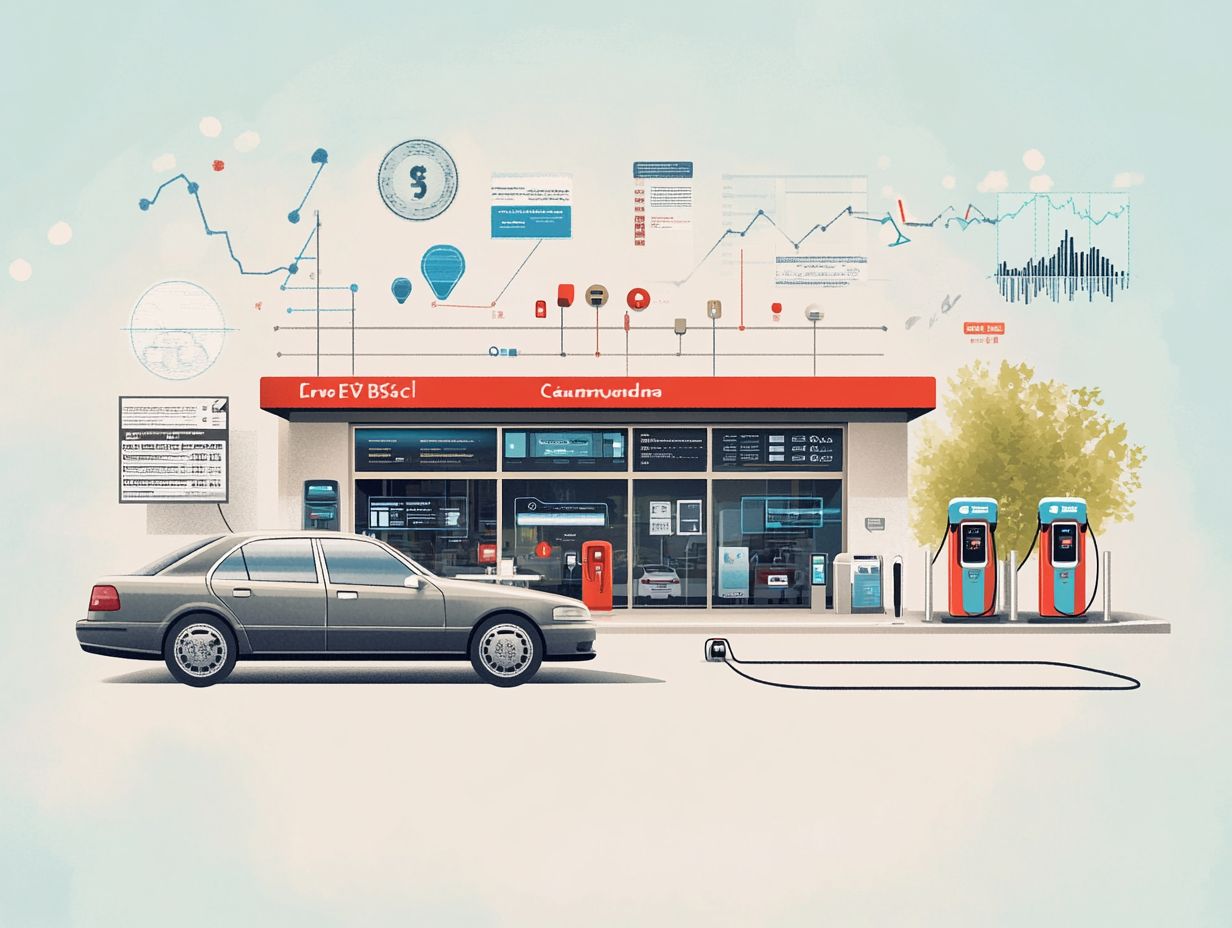
The impact of production costs driven by environmental regulations can lead to notable shifts in car prices, especially for electric and hybrid vehicles designed to meet these standards.
As regulations tighten, manufacturers must adapt quickly. They often invest in advanced technology and sustainable materials, which can elevate production costs, influencing how you perceive the pricing structure and making these vehicles seem like they come with higher upfront costs.
However, the long-term savings on fuel and potential tax incentives can reshape your understanding of value, prompting a shift in your purchasing decisions.
Automakers are consistently on the lookout for innovative ways to manage these costs while keeping their prices competitive. This effort ultimately contributes to a wider range of more affordable options in the expanding electric vehicle market.
Consumer Preferences
Consumer preferences significantly shape the automotive market, guiding everything from car prices to decisions on whether to purchase new or used vehicles.
Your interests also reflect a growing enthusiasm for electric and hybrid cars, which are rapidly gaining traction in today s landscape.
Stay informed about these changes! This knowledge will help you make the best buying decisions.
Influencing Factors on Car Purchases
Many factors influence your car buying choices. These include dealership incentives, car prices, and how these prices align with your preferences.
Financing options are crucial as you evaluate interest rates, loan lengths, and down payment requirements based on your financial situation. These elements work together to create a complex situation. For instance, enticing dealership incentives might lead you to favor certain brands or models.
Consumer preferences are changing fast! Dealerships must quickly adapt to meet these new demands driven by technology and environmental concerns. These factors create a dynamic environment. You, as a buyer, and dealerships, as sellers, must navigate numerous considerations to achieve the best outcomes.
Frequently Asked Questions
What are the factors that affect new car prices in 2024?
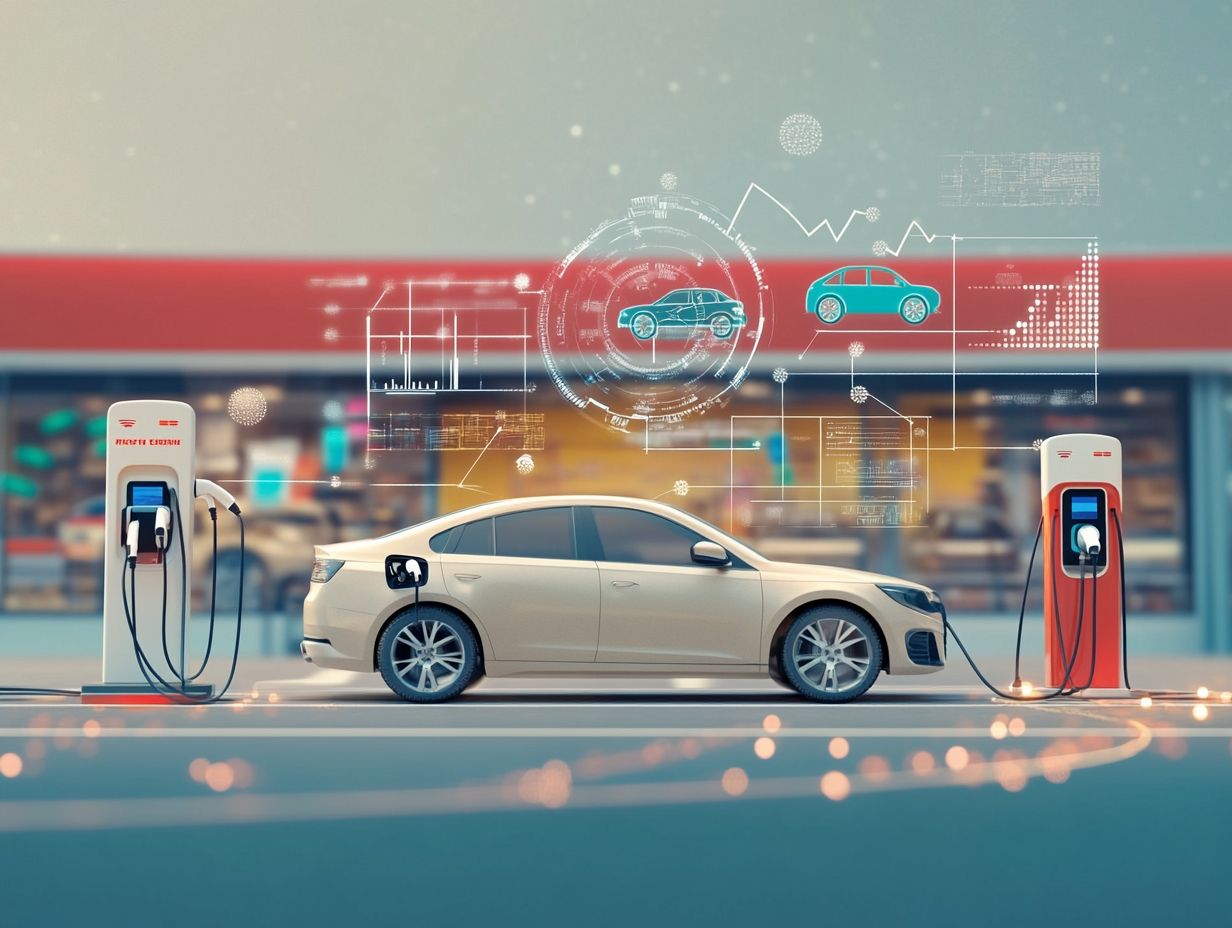
Several factors can influence the price of new cars in 2024, including the state of the economy, the cost of raw materials, changes in consumer demand, and advancements in technology.
How will the state of the economy impact new car prices in 2024?
The economy directly affects new car prices. In a strong economy, expect higher prices due to increased demand. Conversely, in a weak economy, prices may drop as manufacturers offer incentives to boost sales.
What role will raw materials costs play in new car prices in 2024?
Raw materials, such as steel and aluminum, are essential in car manufacturing. If the cost of these materials increases, it can drive up the price of new cars. In 2024, fluctuations in raw material costs may impact prices significantly.
Will changes in consumer demand affect new car prices in 2024?
Yes, changes in consumer demand can significantly impact new car prices. If consumers seek more environmentally friendly or technologically advanced cars, manufacturers may raise prices to cover the cost of these features.
How will advancements in technology impact new car prices in 2024?
Innovations in technology, such as self-driving capabilities and electric engines, can increase the cost of new cars. As technology continues to advance in the automotive industry, expect new car prices to rise in 2024.
Are there any external factors that could affect new car prices in 2024?
Yes, external factors could impact new car prices in 2024. These include changes in government regulations, trade policies, and global economic conditions. Any major shifts in these areas could influence the cost of new cars.



